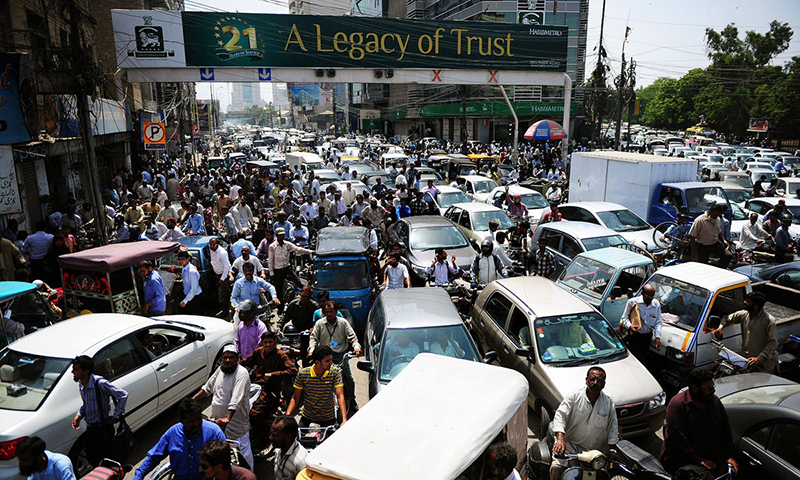Population in Pakistan continues to grow rapidly: report

WASHINGTON: Pakistan’s total population is estimated at 220.9 million and it is growing rapidly with an annual fertility rate of 3.6 children per couple, says a world population report.
The 2020 World Population Data Sheet — released by the US Population Reference Bureau, Washington — also estimates that the world today has a total of 7.8 billion inhabitants.
Referring to the Covid-19 crisis, the report warns that “population density in urban areas, household size, and population aging contribute to our vulnerability to pandemics”.
Also read: Why the Covid-19 crisis is an urban crisis
The report places South Asia among the fastest growing regions in the world and within the region, it marks Afghanistan and Pakistan as the fastest growing populations. Afghanistan has a faster growth rate than Pakistan, 4.5 per couple. But because of high death rates and low life expectancy, the country’s total population is still 38.9m.
At Pakistan’s growth rate — 3.6 — a population doubles in 19.4 years. A country needs to bring its growth rate down to 2 per cent a year to reduce its population. The replacement fertility rate is 2.1, the average number of children a couple needs to have to replace themselves.
Bangladesh’s total population in 2020 is estimated at 169.8m, with an annual growth rate of 2.3.
With a total of 1.424bn people, China still has the largest population in the world but has been able to reduce its fertility rate to 1.5. China’s population is projected to decrease by 2050.
With 1.4bn people, India has the second largest population in the world but has reduced its fertility rate to 2.2.
The United States has a total of 329.9m inhabitants and between 2020 and 2050 its population is projected to increase, but at a much slower pace than recent decades. The US has an annual fertility rate of 1.7, which forces it to allow immigrants to strengthen its work force.
In 91 countries and territories — nearly 45 per cent of the world’s population — total fertility rates are below replacement level.
Middle Africa is the youngest region where 46 per cent of the population is under the age of 15 years. Southern Europe is the world’s oldest region with 23 per cent of the population aged 65 or above.
Asia is the world’s most populous region and its overall population is projected to increase by 15 per cent — from 4.6bn in 2020 to 5.3bn in 2050.
However, the pattern of future population change varies within the region from a 3 per cent decline in East Asia to a 38 per cent increase in Western Asia. Asia’s total fertility rate is below replacement level at 2.0.
Published in Dawn, July 20th, 2020












































